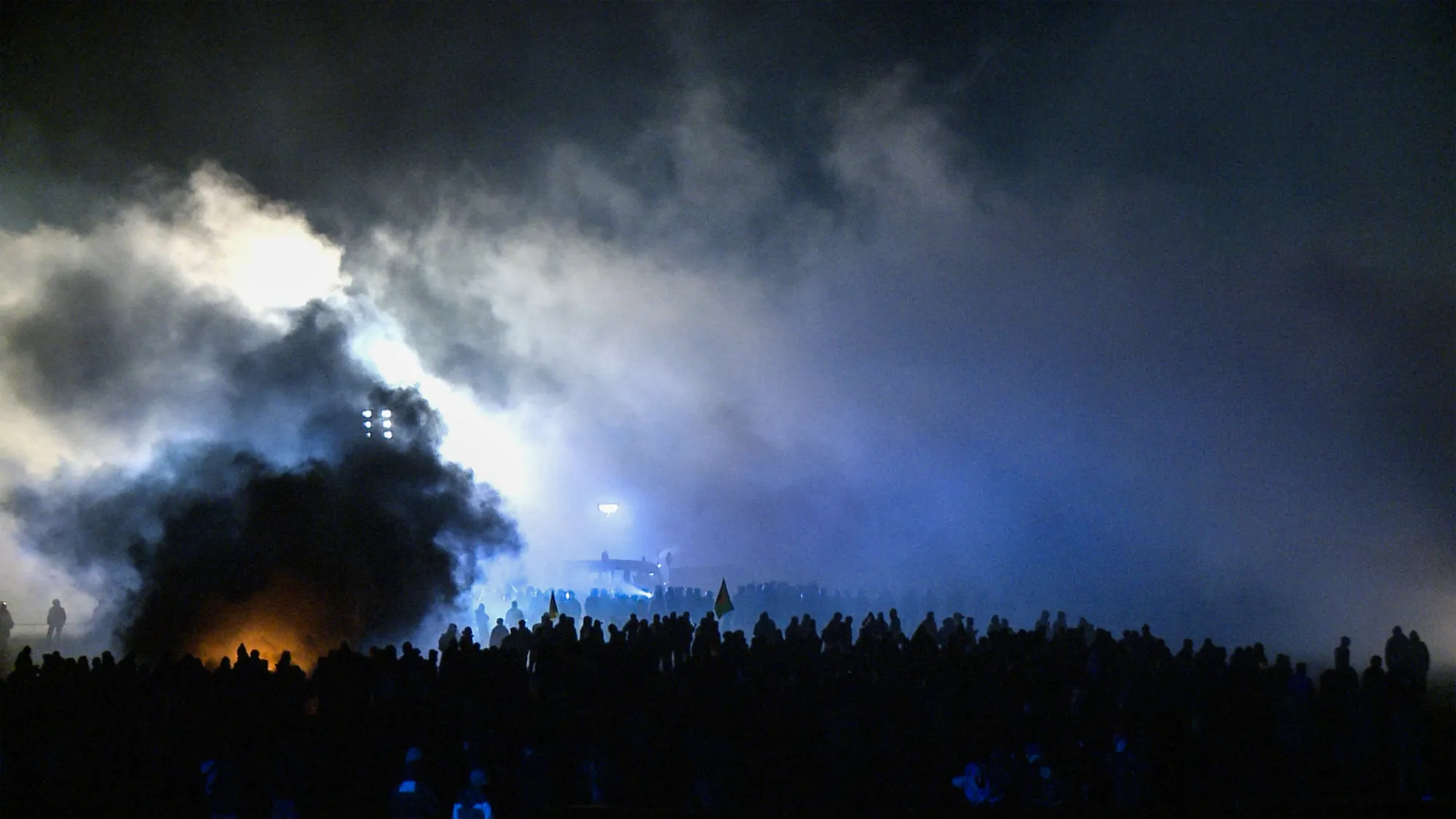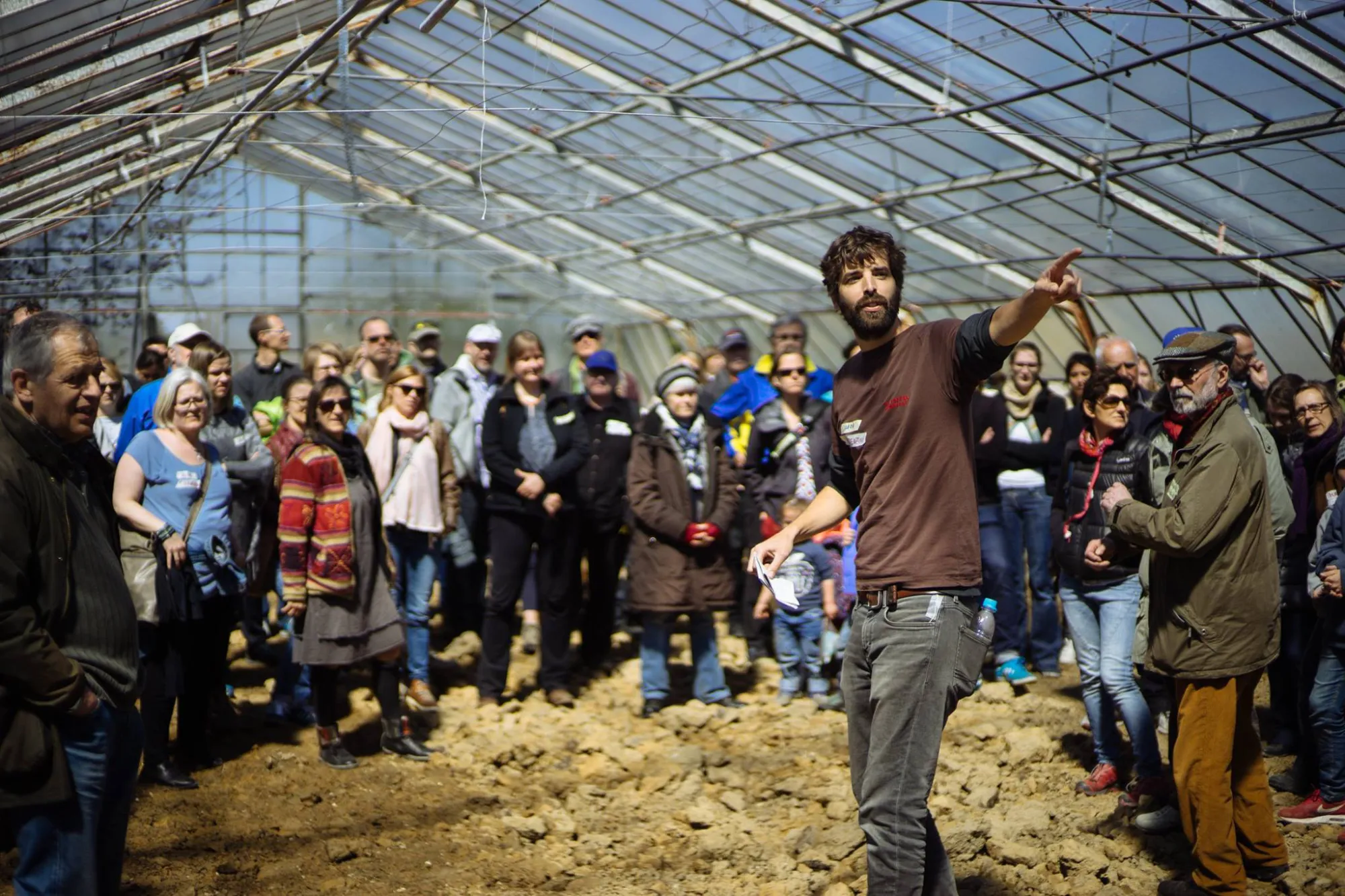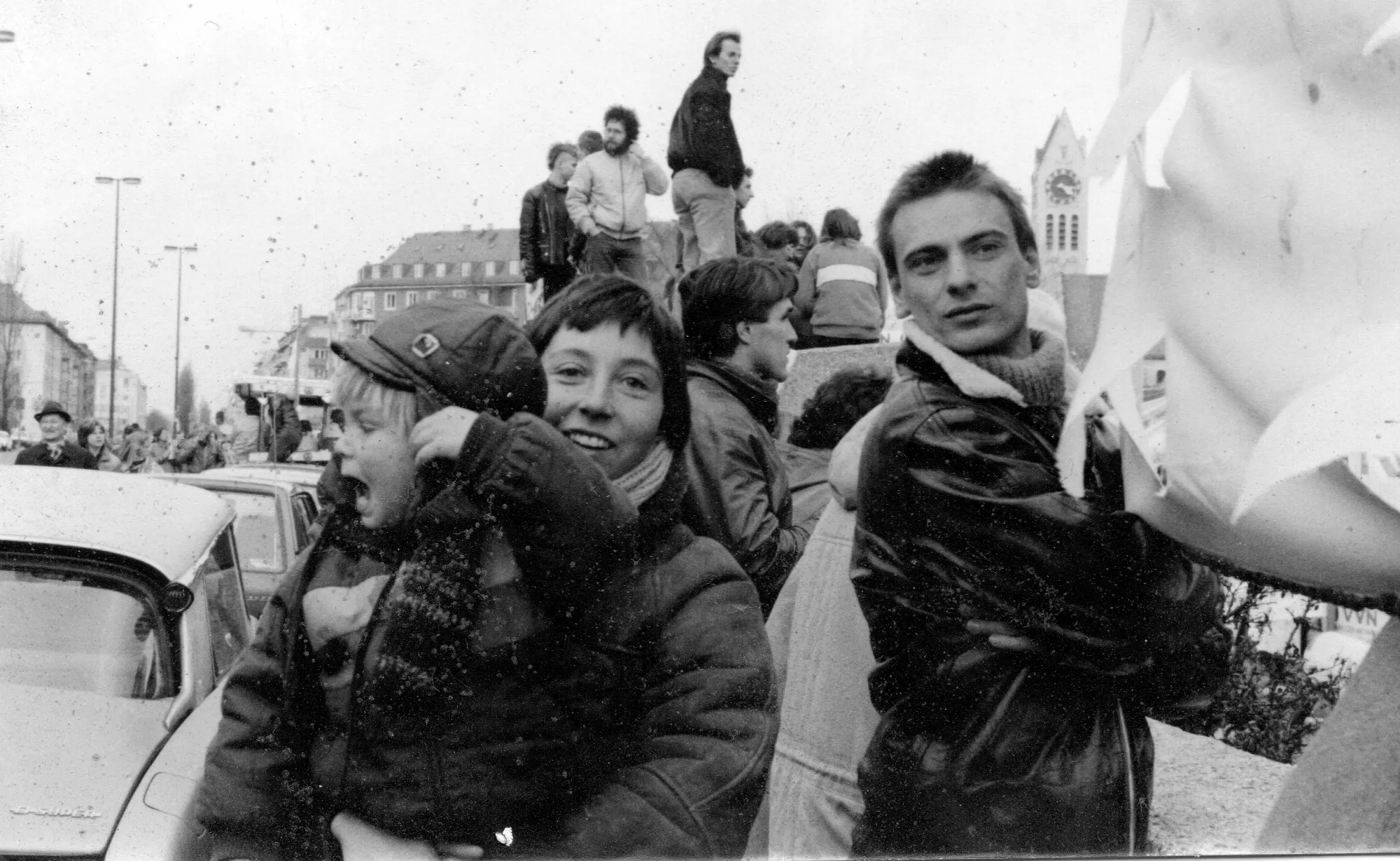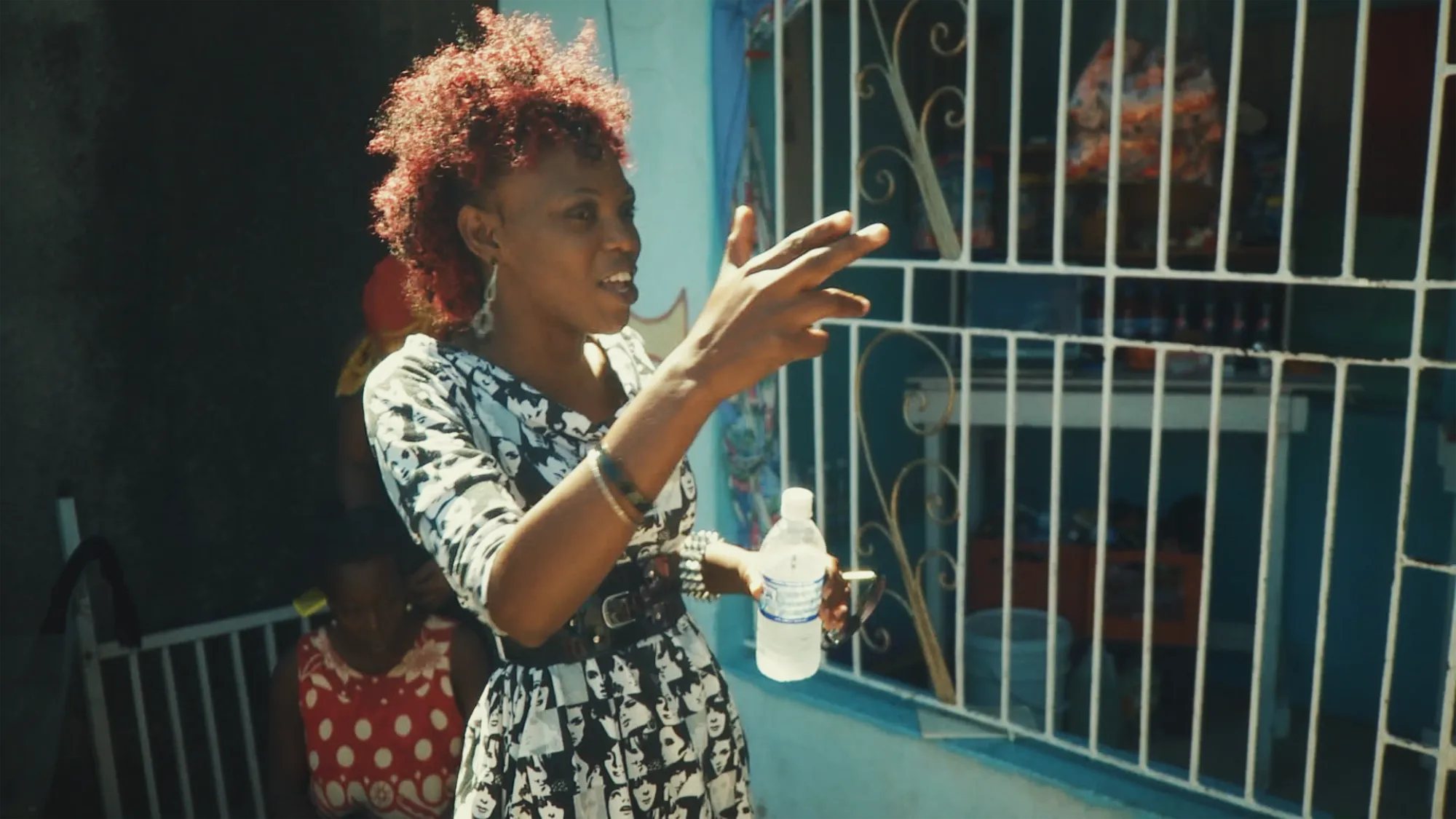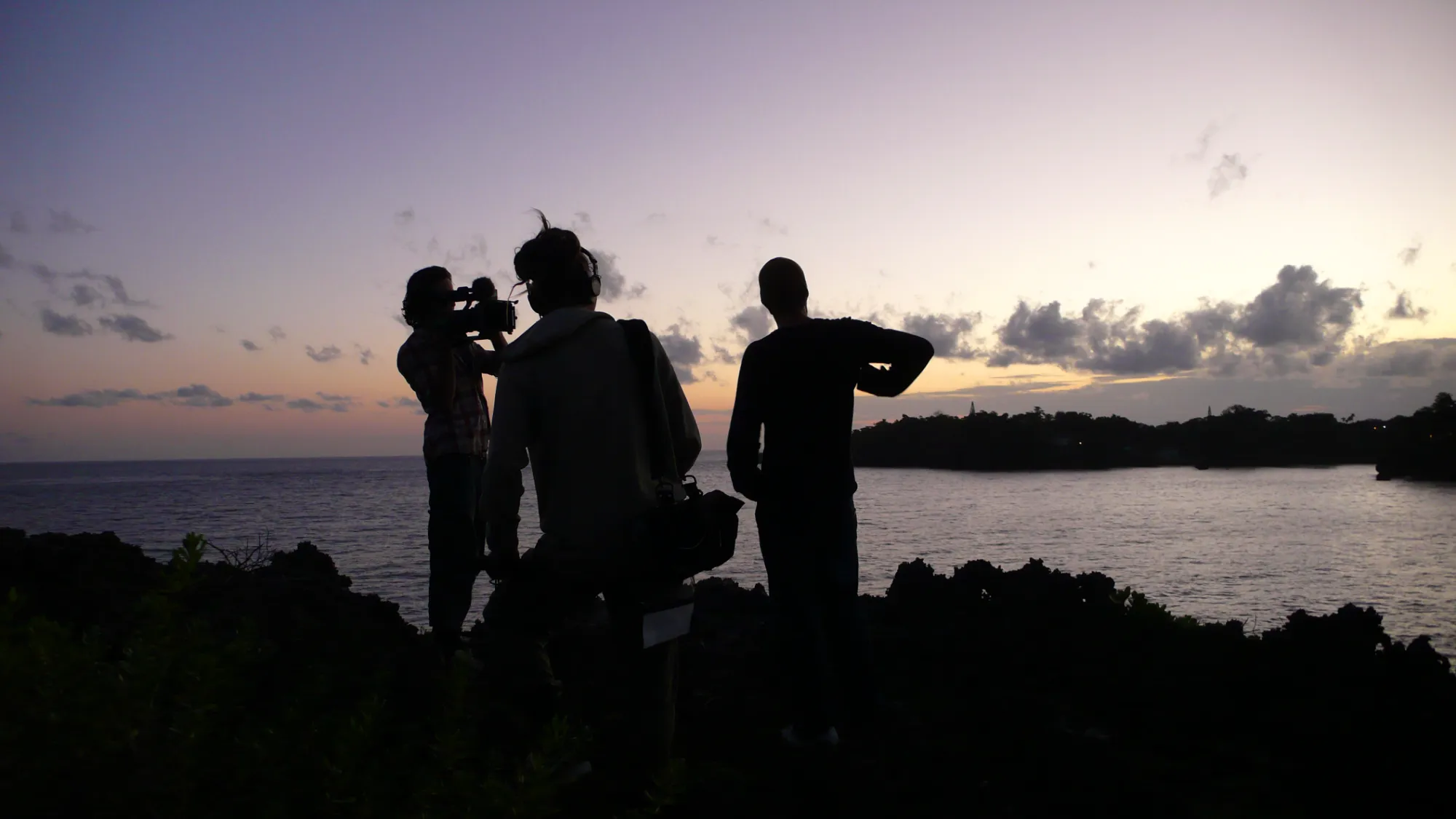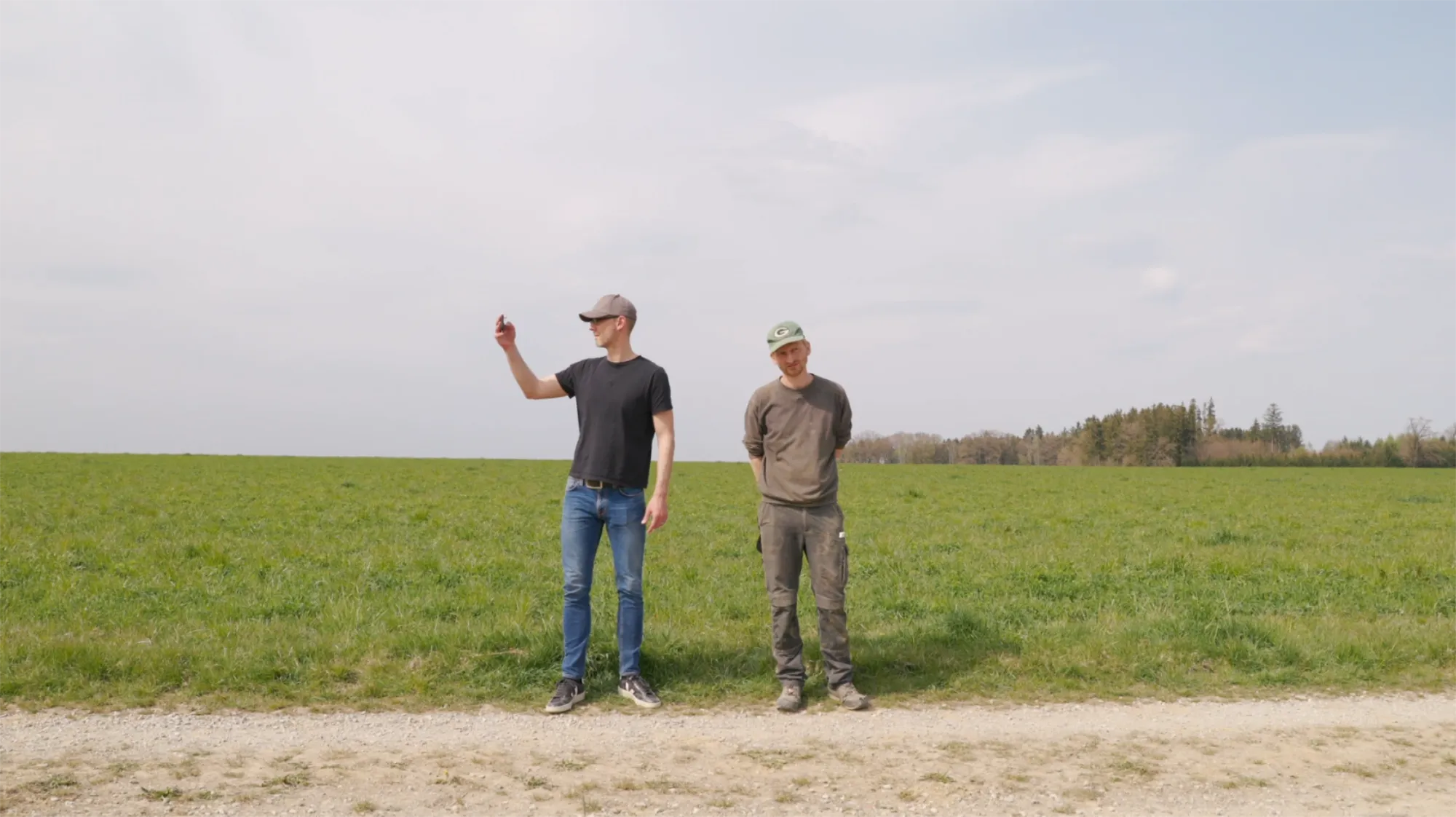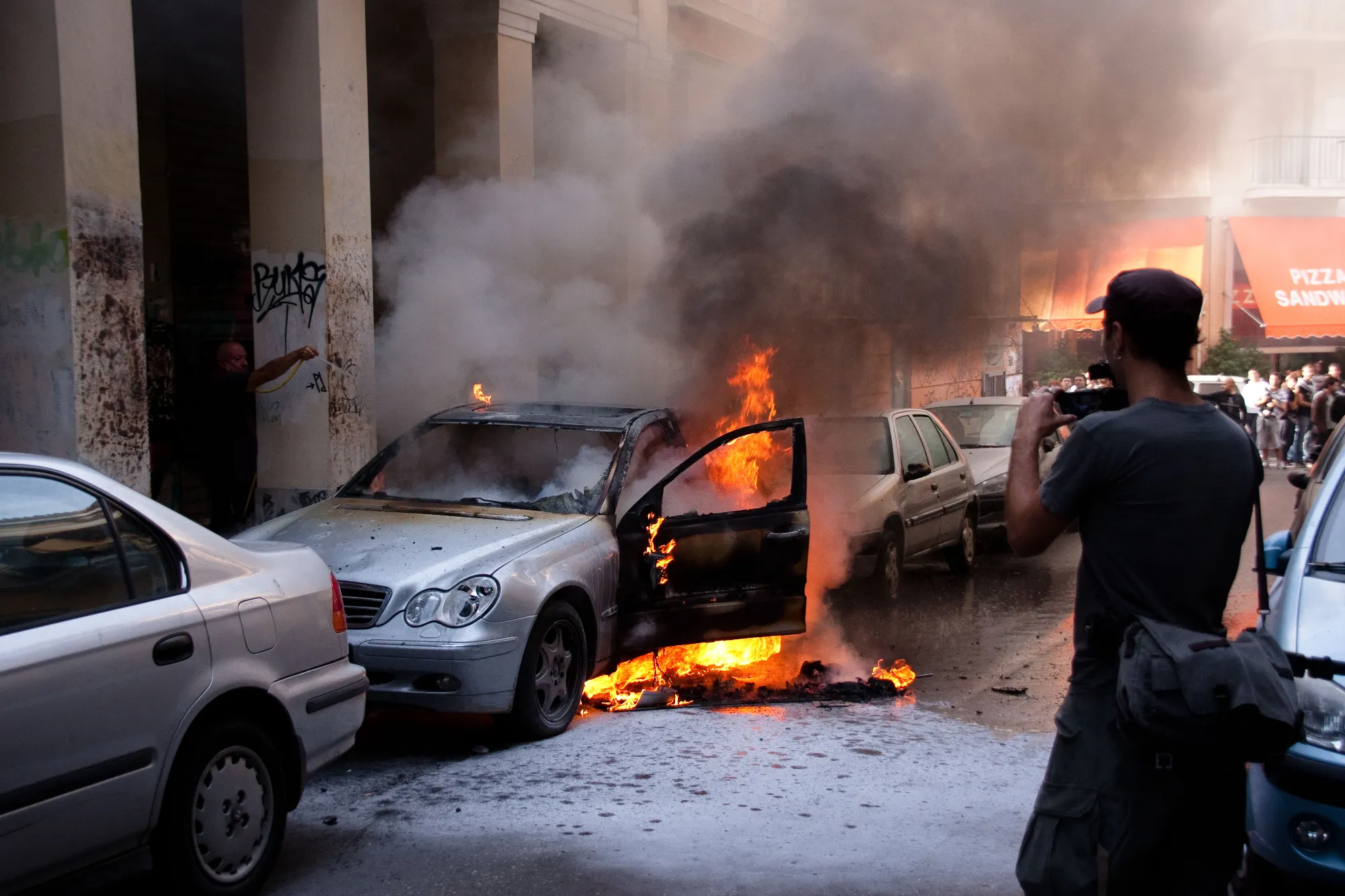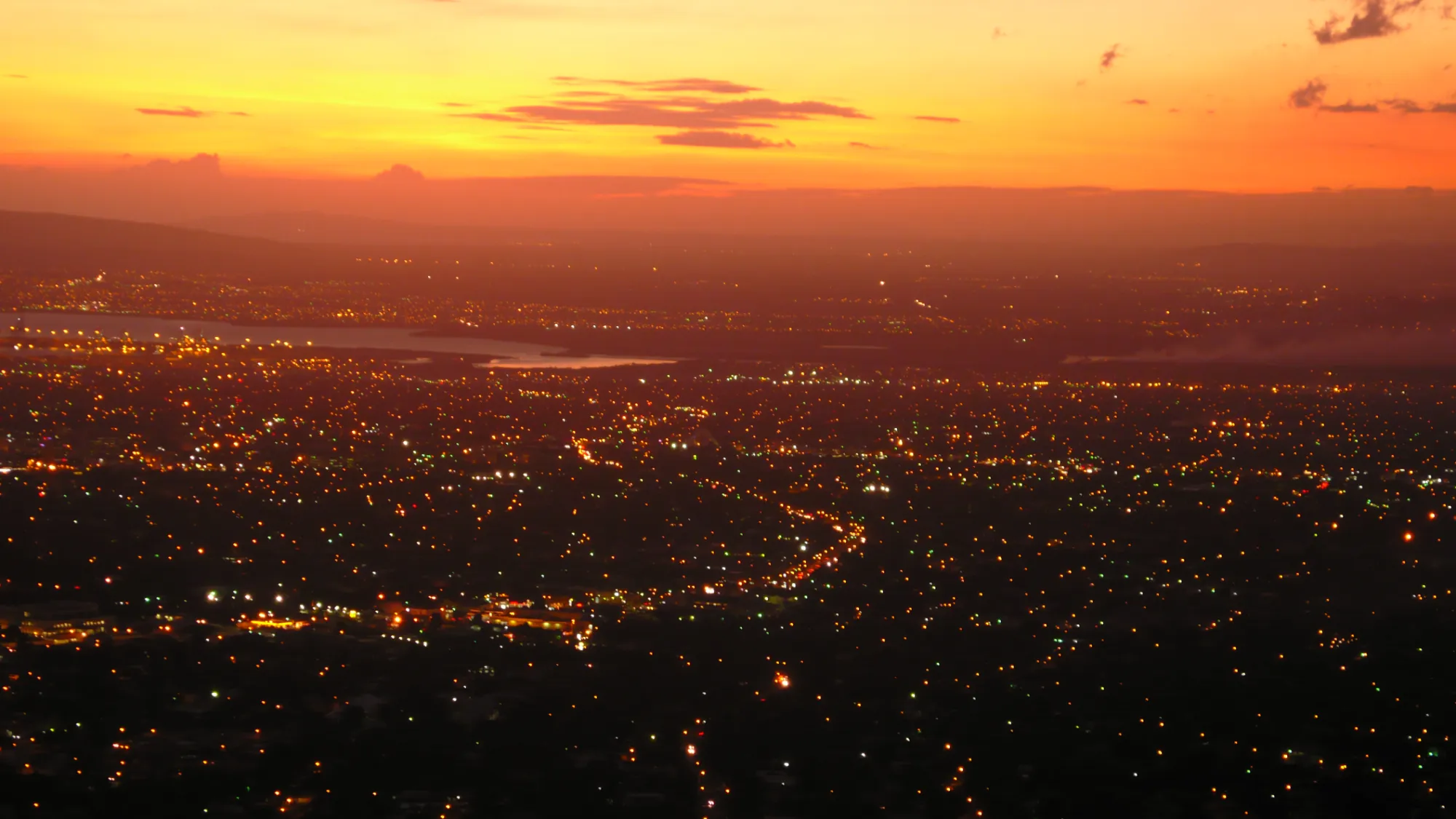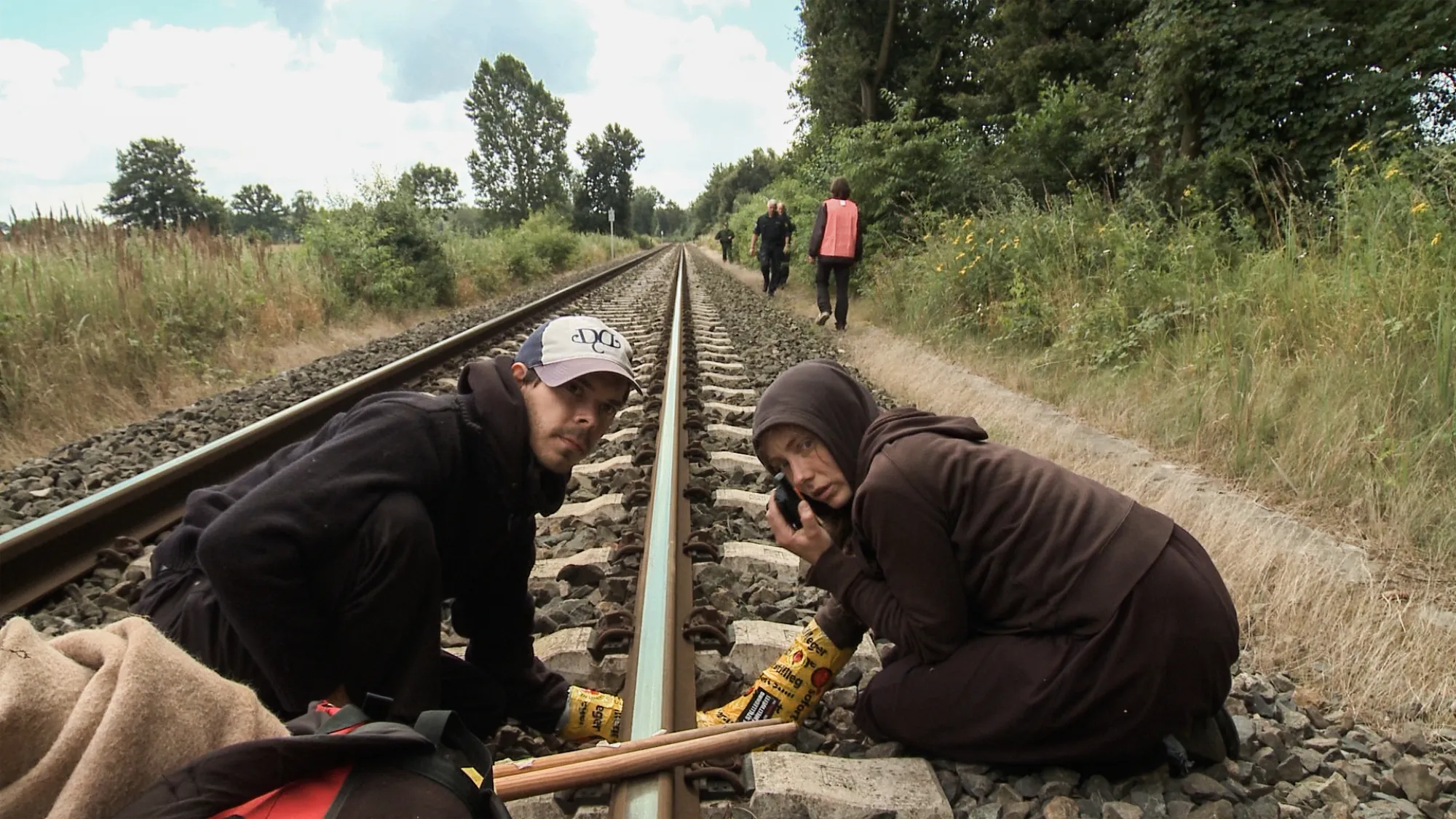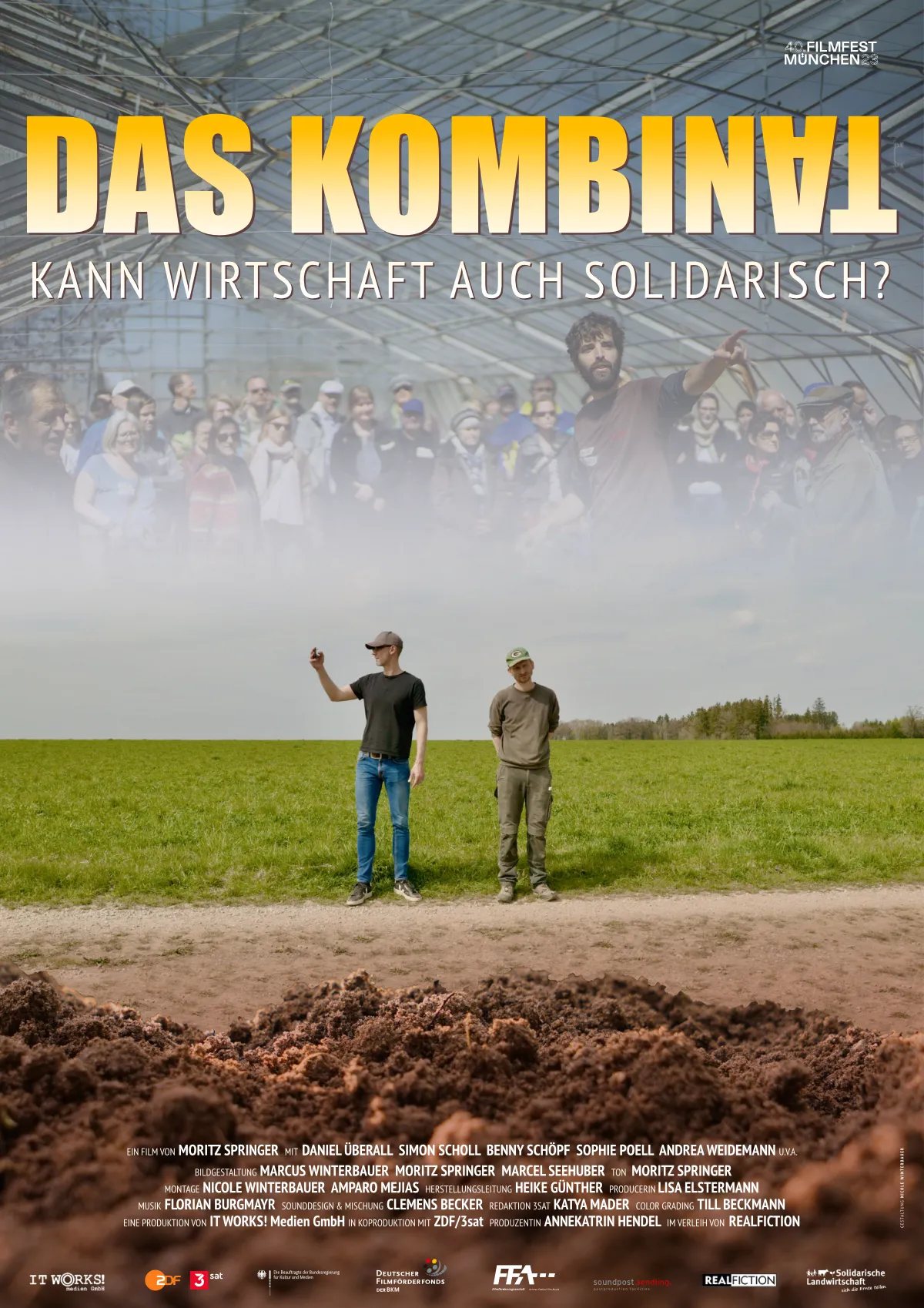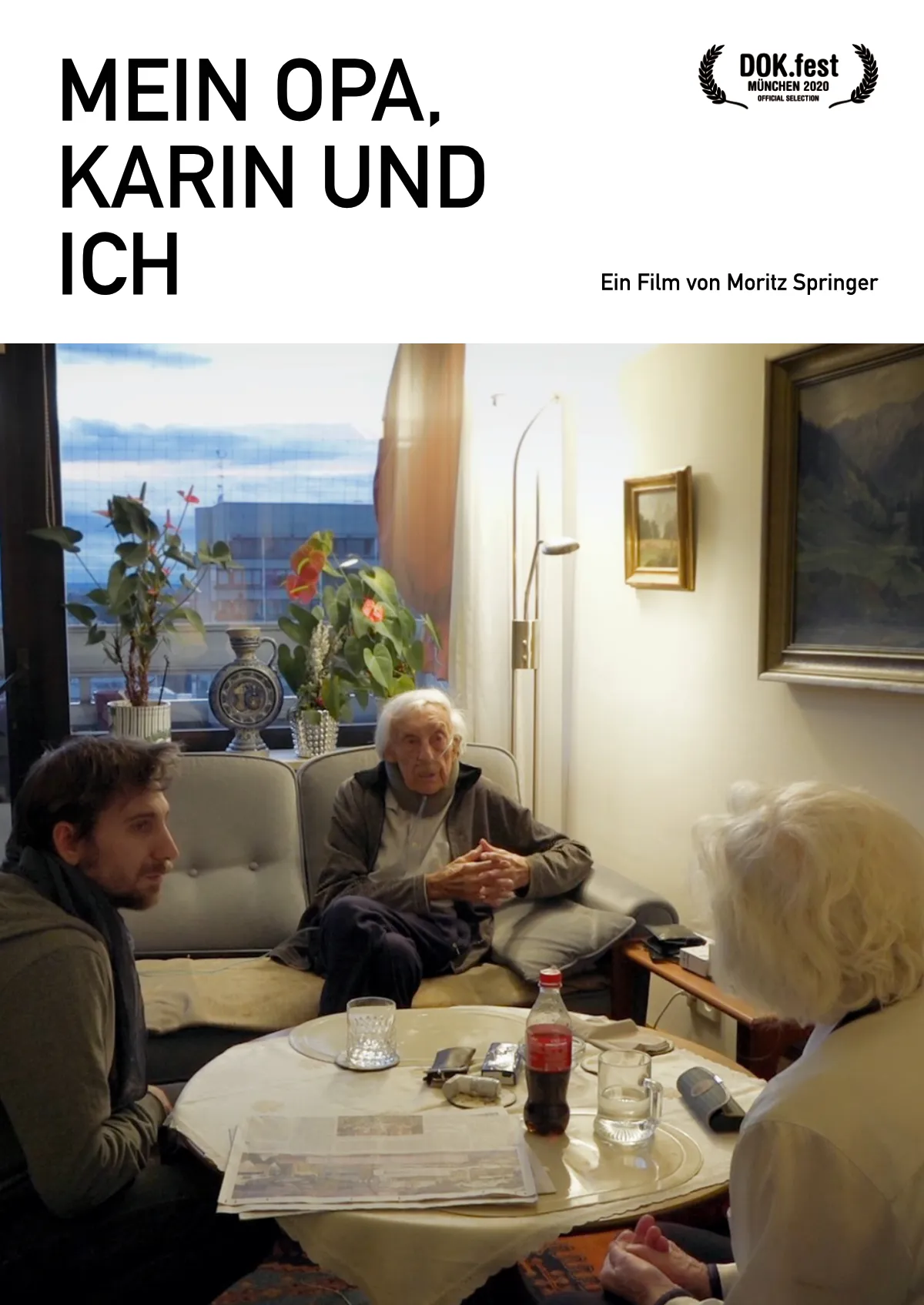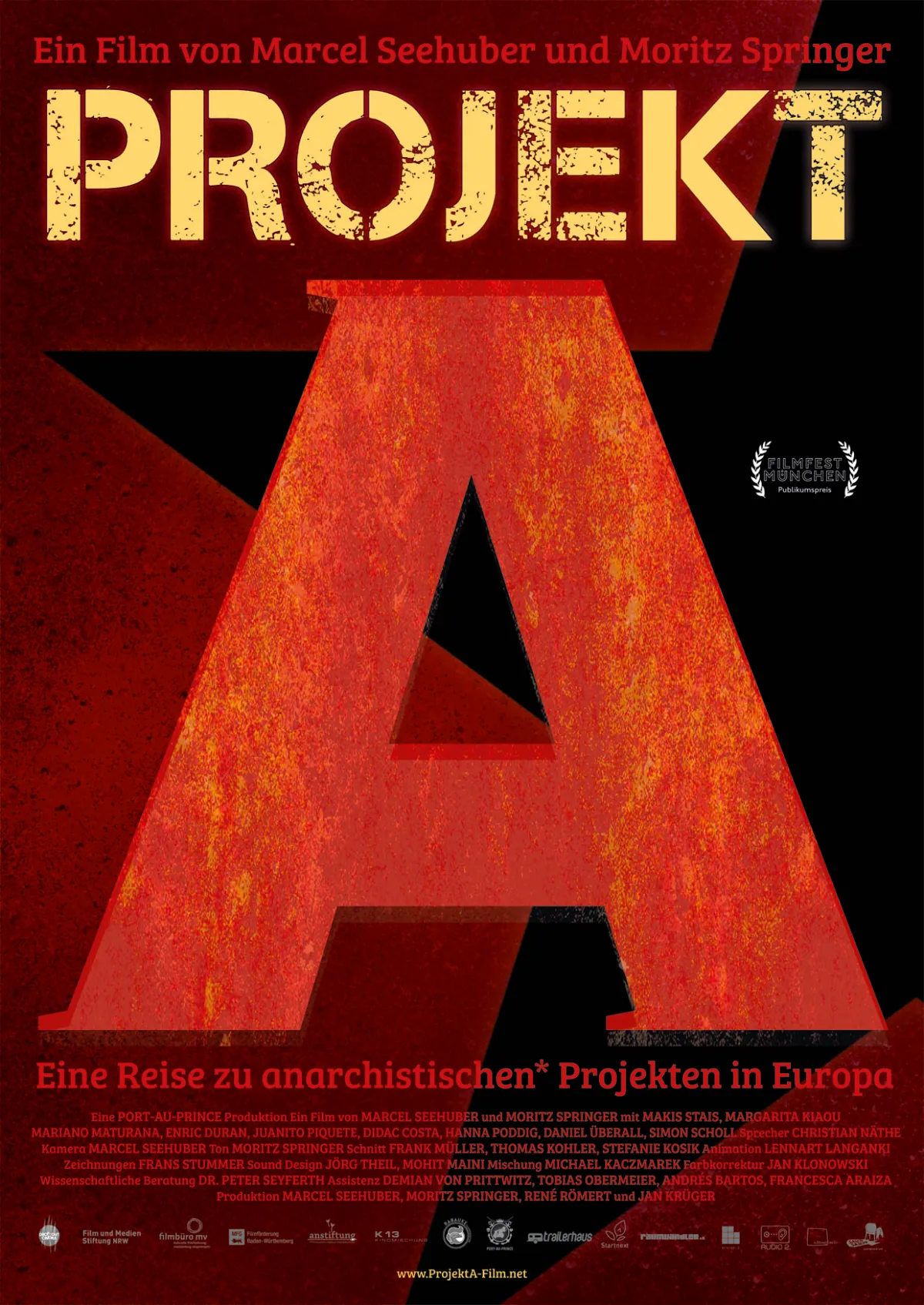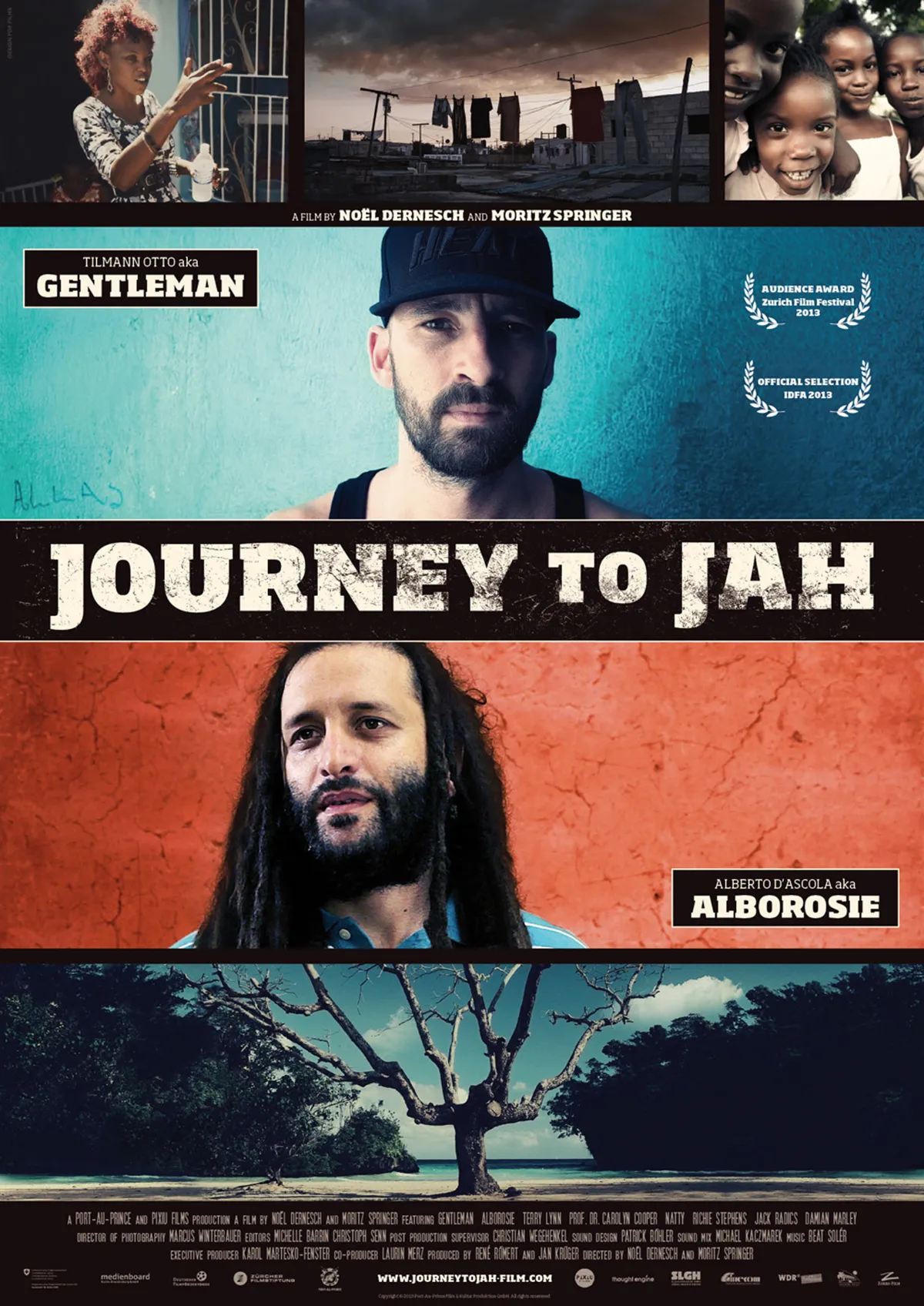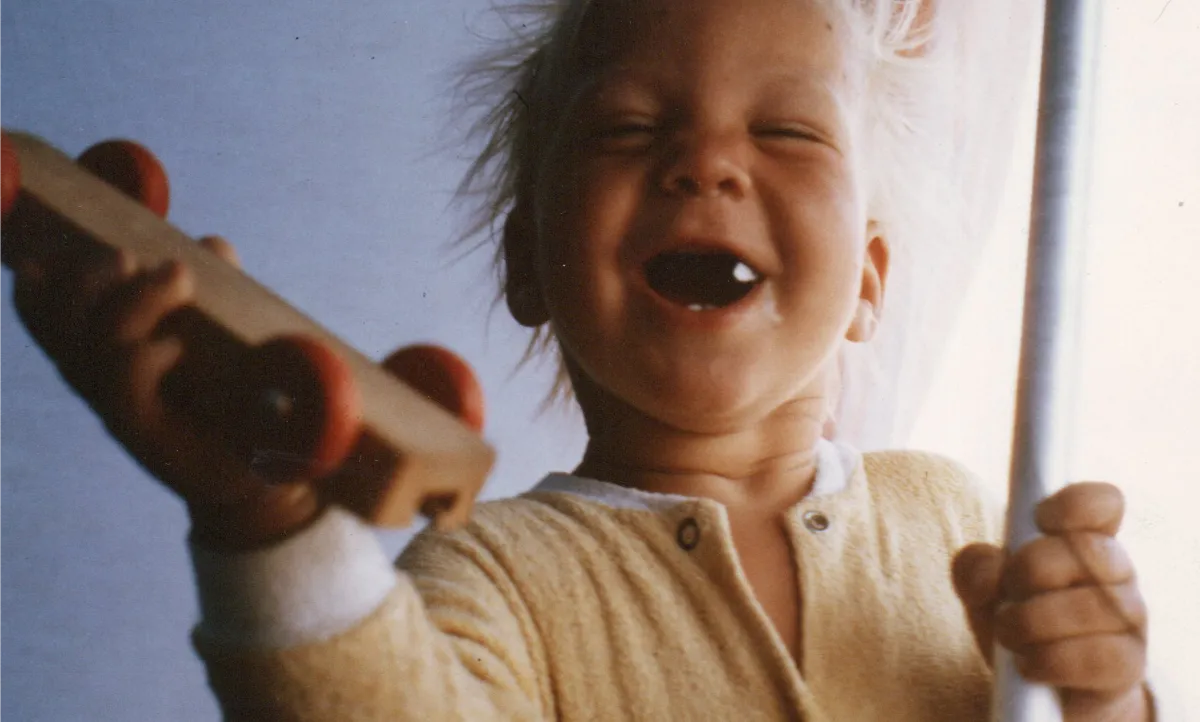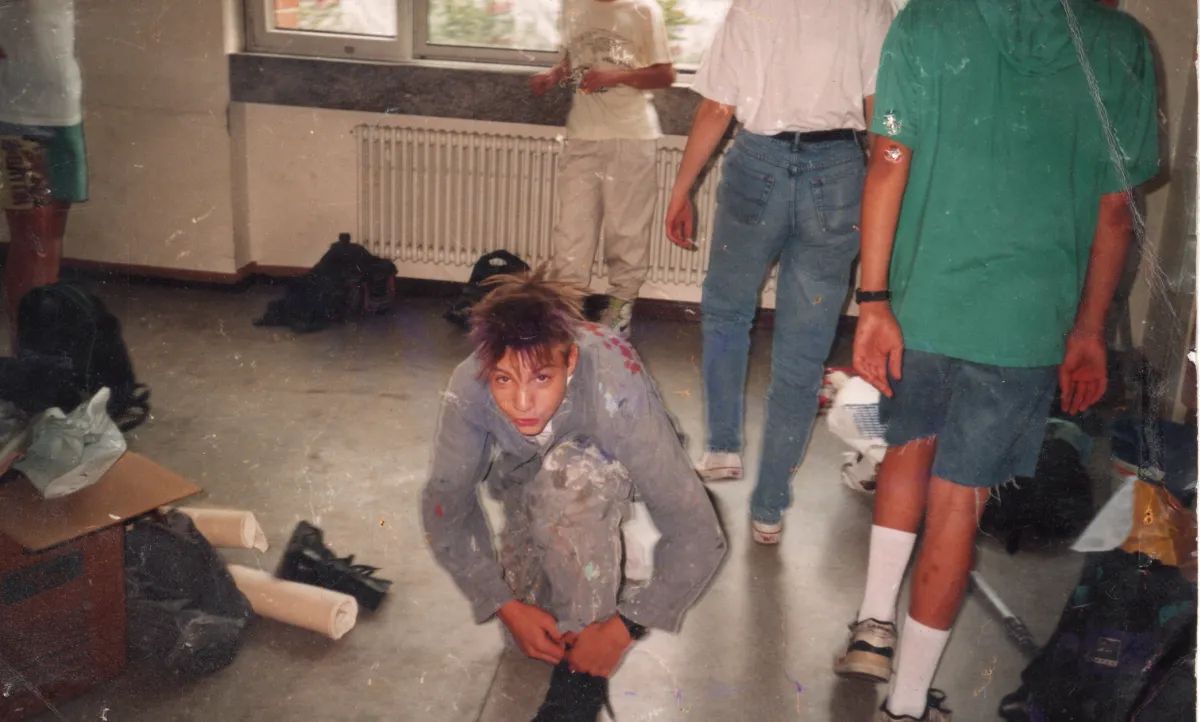Moritz Springer / Documentary films
Ideas
People
Visions
Documentary films
Documentary films
Das Kombinat
2023, 90 min
The documentary film DAS KOMBINAT accompanies the Kartoffelkombinat from Munich over a period of 9 years on its moving journey from an idealistic idea to the largest community-supported agriculture in Germany.
For the two founders Daniel Überall and Simon Scholl, growing vegetables serves as a Trojan horse to promote a much bigger idea. The two want a different economic system, an alternative to the capitalist mode of production. They ask themselves how we produce things, who owns the means of production and who should ultimately benefit from this production? Along the way, both very specific horticultural and personal problems arise and suddenly the project is on the verge of failure.
Das Kombinat
2023, 90 min
The documentary film DAS KOMBINAT accompanies the Kartoffelkombinat from Munich over a period of 9 years on its moving journey from an idealistic idea to the largest community-supported agriculture in Germany.
For the two founders Daniel Überall and Simon Scholl, growing vegetables serves as a Trojan horse to promote a much bigger idea. The two want a different economic system, an alternative to the capitalist mode of production. They ask themselves how we produce things, who owns the means of production and who should ultimately benefit from this production? Along the way, both very specific horticultural and personal problems arise and suddenly the project is on the verge of failure.
Mein Opa, Karin und ich
2020, 90 min
What actually is family? How do the fates of our ancestors shape us? ‘Mein Opa, Karin und ich’ is an intimate insight into the filmmaker’s family life. The grandparents are old and needy, they live in a retirement home. Grandpa expects his daughter Karin to look after him – now that grandma can no longer do so. And Karin visits them regularly, even though her own parents are strangers to her and she is preoccupied with her own life. Unresolved conflicts break out. Father and daughter suffer. The grandson wants to mediate between his grandfather, the former National Socialist, and his mother, who has been searching for new life models and female roles in the wake of the 1968 movement. The film traces the different perspectives of the family members, which are also a piece of West German history, and juxtaposes them. Grandfather and mother struggle to come together and the grandson wonders why it seems to be so difficult. But the longer the argument goes on, the more he realises that he is also involved in this generational conflict. And so, unexpectedly, there is an open exchange between Karin and her son. The roles of interviewer and interviewee become blurred. The camera is part of the action. It allows the audience to get close to the family events without turning them into voyeurs.
Mein Opa, Karin und ich
2020, 90 min
What actually is family? How do the fates of our ancestors shape us? ‘Mein Opa, Karin und ich’ is an intimate insight into the filmmaker’s family life. The grandparents are old and needy, they live in a retirement home. Grandpa expects his daughter Karin to look after him – now that grandma can no longer do so. And Karin visits them regularly, even though her own parents are strangers to her and she is preoccupied with her own life. Unresolved conflicts break out. Father and daughter suffer. The grandson wants to mediate between his grandfather, the former National Socialist, and his mother, who has been searching for new life models and female roles in the wake of the 1968 movement. The film traces the different perspectives of the family members, which are also a piece of West German history, and juxtaposes them. Grandfather and mother struggle to come together and the grandson wonders why it seems to be so difficult. But the longer the argument goes on, the more he realises that he is also involved in this generational conflict. And so, unexpectedly, there is an open exchange between Karin and her son. The roles of interviewer and interviewee become blurred. The camera is part of the action. It allows the audience to get close to the family events without turning them into voyeurs.
PROJEKT A
A journey to anarchist* projects in Europe
2015, 85 min, Moritz Springer & Marcel Seehuber
A documentary film about the political idea of anarchy and its concrete realisation in very different projects.
Financial crises and refugee flows, social inequalities and ecological disasters, wars and terrorism – our civilisation is hurtling towards a wall like a high-speed train. At the wheel are governments that are seemingly incapable of solving people’s problems. But aren’t governments part of the problem? What would be the alternative?
PROJEKT A is a film that defies the usual clichés about anarchism and shows that another world is possible. It breaks with the usual clichés about stone-throwers and chaotic people. Instead, it opens up a view of a movement that demands the impossible, shakes the foundations of our society and, for this very reason, draws attention to the central unresolved issues of our time. The film is about a political movement, its theory and the people who are committed to its realisation. Whether in the anarchist district of Exarchia in Athens, at anti-nuclear power actions in Germany, at the world’s largest anarcho-syndicalist trade union in Spain, a Catalan cooperative or at the cooperatively organised potato combine in Munich: The activists put their visions into practice, independently of state structures, with equal rights and with the goal of a society based on solidarity in mind. A world in which no one should rule over knowledge, resources, land or other people.
PROJEKT A
A journey to anarchist* projects in Europe
2015, 85 min, Moritz Springer & Marcel Seehuber
A documentary film about the political idea of anarchy and its concrete realisation in very different projects.
Financial crises and refugee flows, social inequalities and ecological disasters, wars and terrorism – our civilisation is hurtling towards a wall like a high-speed train. At the wheel are governments that are seemingly incapable of solving people’s problems. But aren’t governments part of the problem? What would be the alternative?
PROJEKT A is a film that defies the usual clichés about anarchism and shows that another world is possible. It breaks with the usual clichés about stone-throwers and chaotic people. Instead, it opens up a view of a movement that demands the impossible, shakes the foundations of our society and, for this very reason, draws attention to the central unresolved issues of our time. The film is about a political movement, its theory and the people who are committed to its realisation. Whether in the anarchist district of Exarchia in Athens, at anti-nuclear power actions in Germany, at the world’s largest anarcho-syndicalist trade union in Spain, a Catalan cooperative or at the cooperatively organised potato combine in Munich: The activists put their visions into practice, independently of state structures, with equal rights and with the goal of a society based on solidarity in mind. A world in which no one should rule over knowledge, resources, land or other people.
Journey to Jah
2013, 95 min, Moritz Springer & Noel Dernesch
The documentary film JOURNEY TO JAH tells the story of searching for and finding a spiritual home in a foreign culture and accompanies people who have one thing in common: Music.
For seven years, the two directors Moritz Springer and Noël Dernesch and cameraman Marcus Winterbauer (including ‘Rhythm is it’) followed the two European reggae musicians GENTLEMAN and ALBOROSIE on their search for authenticity beyond Western consumer societies in the land of Rastafari and reggae: JAMAIKA. Alongside the two Europeans, we get to know the Jamaican musician Terry Lynn and the Rasta Natty. Their lives contrast the dream of the two Europeans and make it clear that Jamaica and Rasta are so much more than one love and unity.
Journey to Jah
2013, 95 min, Moritz Springer & Noel Dernesch
The documentary film JOURNEY TO JAH tells the story of searching for and finding a spiritual home in a foreign culture and accompanies people who have one thing in common: Music.
For seven years, the two directors Moritz Springer and Noël Dernesch and cameraman Marcus Winterbauer (including ‘Rhythm is it’) followed the two European reggae musicians GENTLEMAN and ALBOROSIE on their search for authenticity beyond Western consumer societies in the land of Rastafari and reggae: JAMAIKA. Alongside the two Europeans, we get to know the Jamaican musician Terry Lynn and the Rasta Natty. Their lives contrast the dream of the two Europeans and make it clear that Jamaica and Rasta are so much more than one love and unity.
About me
About me
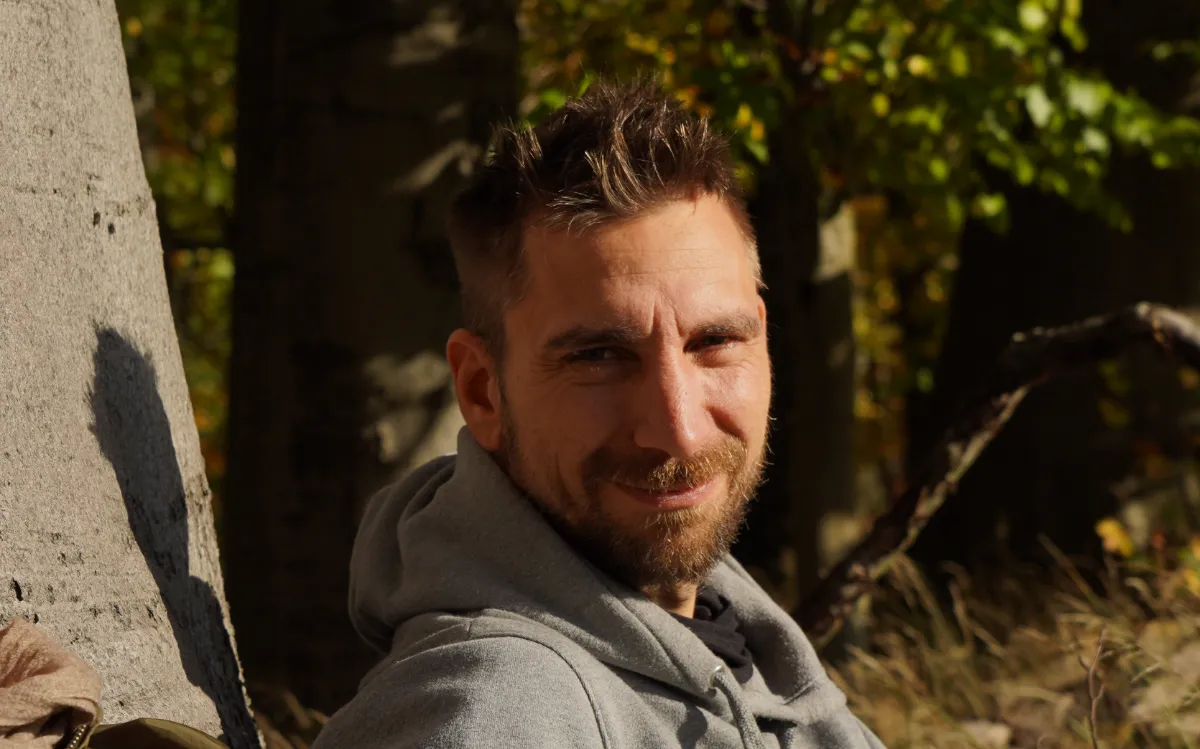
Moritz Springer
writer / director / sound recordist
and in search of the good life

Moritz Springer
writer / director / sound recordist
and in search of the good life
Beginnings
Beginnings
I was born in Starnberg in 1979. But I was really only born there. Starnberg had one of the first alternative maternity clinics. Immediately after the birth, I went back to Munich’s Westend, where I grew up, lived until I finished school and started playing football on the football pitch at an early age.
However, my grandad’s dream of a football career never materialised. Instead, from the age of 15, I started thinking about other ways of living together. My parents, who describe themselves as the 78 generation and founded one of Munich’s first children’s shops alongside their studies, may not have been entirely innocent in this debate.
Travelling together to Indonesia, the U.S.A., Costa Rica and Venezuela also had a strong influence on me and awakened an interest in other cultures and perspectives. After leaving school, I travelled to North and West Africa for six months. I travelled from Egypt to South Africa by plane, bus, train and truck. In Ethiopia, I laid the foundations for my first serious film project. However, it took three years before I even got round to the idea.
Documentary films
Documentary films
The fascination for the medium of film emerged early on. After various experiences with feature films in Bavaria and an internship in Hollywood, it was clear that I wanted to make a documentary film. I am interested in working with people and the opportunity to immerse myself in their realities.
Film was and is a medium for me to deal with topics that move me. JOURNEY TO JAH was born out of my encounter with Rastafarians in Ethiopia in Shashamane. It then took a whole 10 years until it became my documentary film debut, which won the Audience Award at the Zurich Film Festival and the DEFA Foundation Award at the Max Ophüls Prize, among others.
At PROJEKT A, it was the anarchist Horst Stowasser who inspired me to explore the question of whether there is an alternative to capitalism and what ideas anarchism can offer. A topic that didn’t go down too well with the sponsors. With crowdfunding, minimal support from small film funds and a lot of commitment from everyone involved, we completed the film in a completely anarchistic, self-organised way and then screened it very successfully in German cinemas with 25,000 viewers. The film even won the audience award at the Munich Film Festival.
My third film MEIN OPA, KARIN UND ICH, celebrated its premiere at the DOK.fest in Munich in 2020 and is a very personal examination of the story of my grandfather, my mother and me.
Life
Life
Film was always just one aspect of my life and I also asked myself specifically how I wanted to live. After the dream of having my own anarchist South Sea island on a school trip to Kiev was revealed as unrealistic by our history teacher, I searched in Germany and Switzerland for a place where we could come closer to our utopia of a different life.
After travelling through the Emmental, Lassaner Winkel and Berlin, we finally ended up as a family with friends in a small village in Brandenburg in 2010. Dealing with the people, plants, animals and the land gives me strength and challenges me.
It was also because we grow vegetables ourselves on a small scale and at the same time I see how farming is done around us that led me to my last film DAS KOMBINAT. I wanted to find out what a different form of agriculture could look like and whether we need a different way of doing business. To do this, I spent nine years following Germany’s largest solidarity farming organisation, the Kartoffelkombinat. The documentary was successfully screened at the Munich Film Festival in 2023, at various festivals and in cinemas with great cooperation with local initiatives. This also gave rise to the idea of initiating a project here in the region to make the idea of community-supported agriculture better known and bigger. To this end, we want to network existing and new farms and establish an umbrella structure that brings consumers and producers together and creates a connection and commitment.
Perspectives
Perspectives
In terms of film, I am currently concerned with the question of what a narrative should look like that helps us to counter the challenges of our time with something positive. After 25 years of dealing with the topic of sustainability and alternatives, I see the need to take another step back and ask ourselves how we really want to live. I’m just getting to know some great people who are dealing with collapse, music, learning, spirituality, trauma and the good life. Let’s see how we can weave a film out of this…
Sound recordist
Sound recordist
And last but not least, I do sound for documentary films. I’ve been doing this for 14 years now and for over 30 cinema and TV documentaries. I have my own equipment and am happy to dive into new worlds with the director and camera. I never went to a film school and so I was able to observe and learn from many great directors how they tell their stories.
